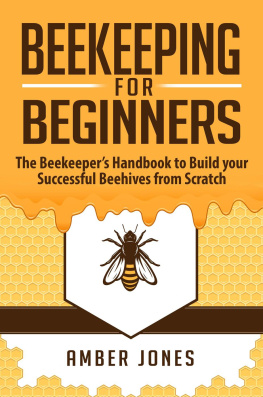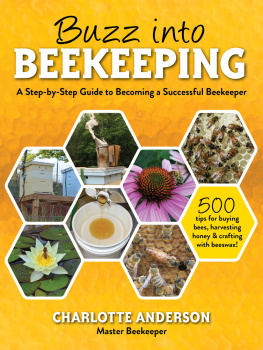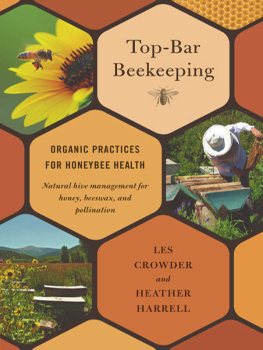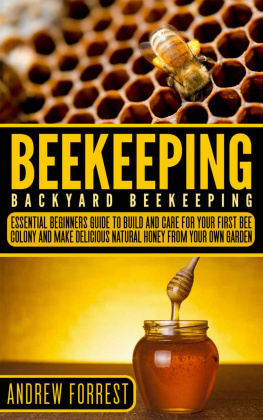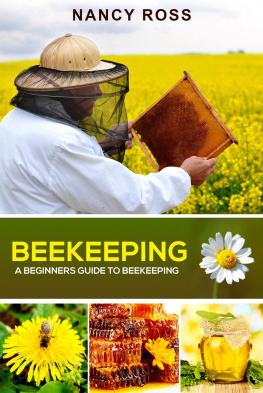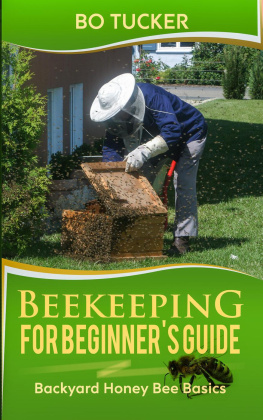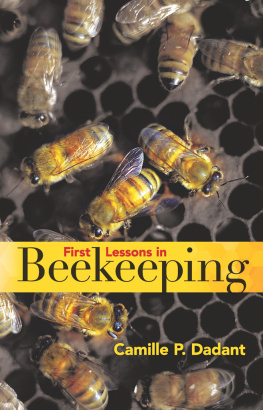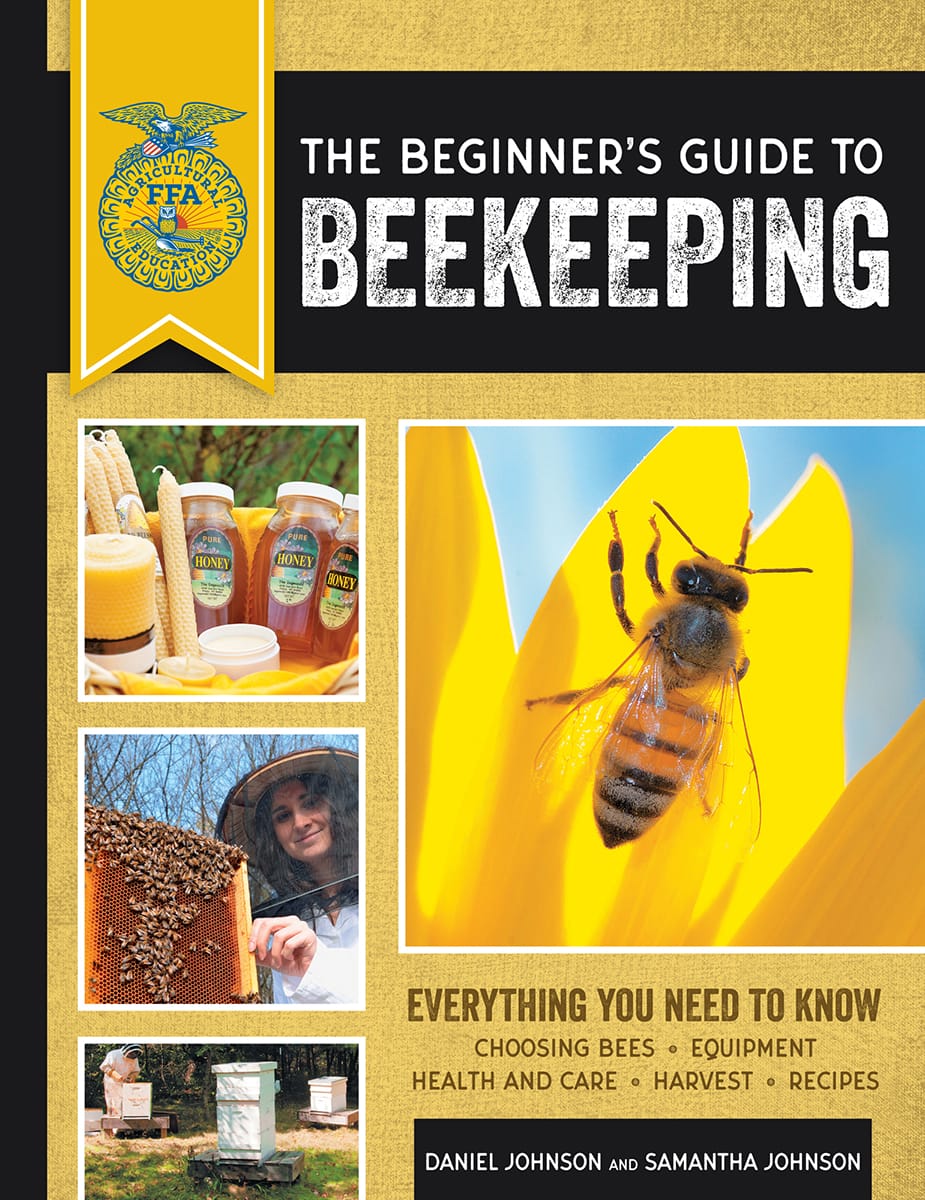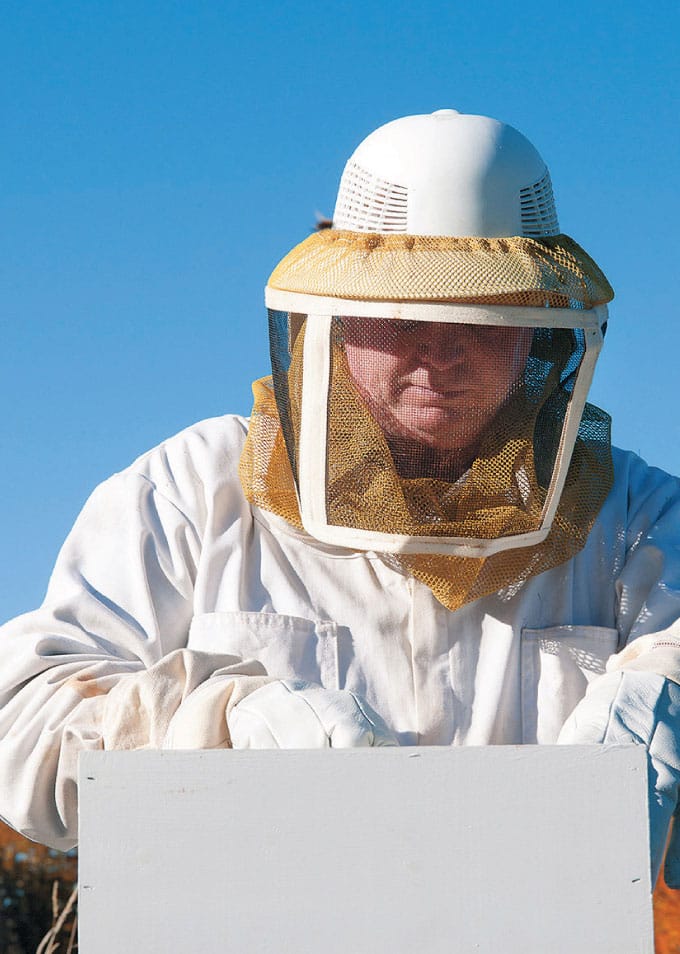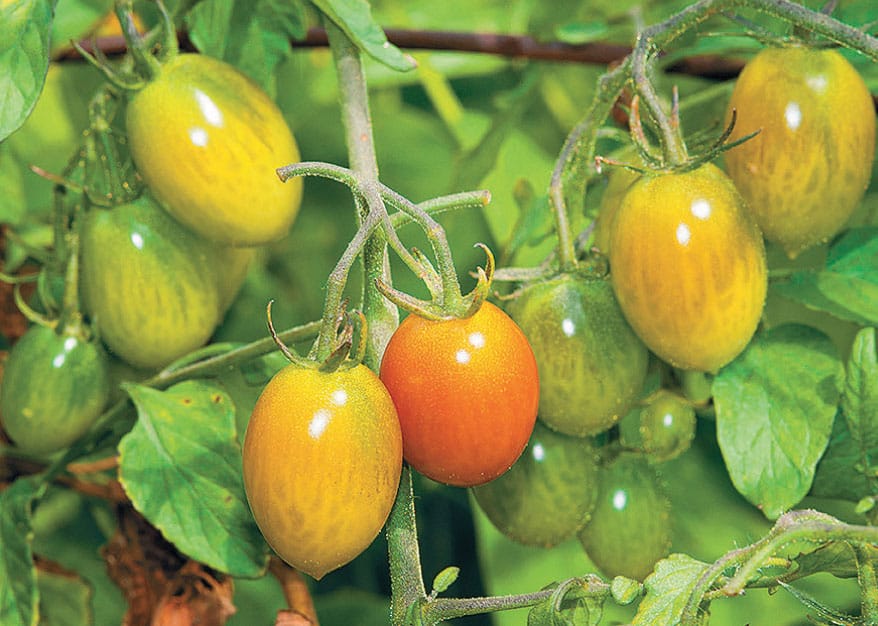Contents
Guide
SECOND EDITION
THE BEGINNERS GUIDE TO
BEEKEEPING
EVERYTHING YOU NEED TO KNOW
CHOOSING BEES EQUIPMENT HEALTH AND CARE HARVEST RECIPES
DANIEL JOHNSON AND SAMANTHA JOHNSON

INTRODUCTION
The tremendous trifecta of bounty from the hive: pollen, beeswax, and honey!
AS BEES IN EARLY SUMMER SWARM APACE
THROUGH FLOWERY FIELDS, WHEN FORTH FROM DALE AND DELL
THEY LEAD THE FULL-GROWN OFFSPRING OF THE RACE,
OR WITH LIQUID HONEY STORE EACH CELL
AND MAKE THE TEEMING HIVE WITH NECTAROUS SWEETS TO SWELL.
THESE EASE THE COMERS OF THEIR LOADS, THOSE
DRIVE THE DRONES AFAR. THE BUSY WORK EACH PLIES
AND SWEET WITH THYME AND HONEY SMELLS THE HIVE.
VIRGILS AENEID, BOOK 1
Welcome to the world of beekeeping! Were excited that youve decided to explore this enjoyable, fascinating, and potentially tasty hobby. Our hope in writing this book is that bee-ginning beekeepers will find some helpful tips for getting started, that more advanced beekeepers will pick up some new ideas and further their knowledge, and that everyone will have some fun along the way. Well do our best to tell you everything you need to know to successfully raise a hive, harvest honey, and be part of this rapidly growing community of beekeepers. And well do our best not to overwhelm you with bee humor and punsalthough restraining ourselves will bee hard to do!
So why keep bees? Beekeeping interests people for many different reasons, but here are a few of our favorites:
1. BEES MAKE HONEY! This one is pretty obvious. There is nothing like the satisfaction of enjoying the sweet produce of your hives.
2. BEES MAKE BEESWAX. Bees make more than just honey, you know! Additional products from your hive include beeswax and pollen, whichalong with your honeycan be used to make a wide variety of products from candles to soaps. Well discuss all of this in greater detail in .
3. BEES ARE FASCINATING. Really, until youve spent some time observing the habits of these little creatures, you wont appreciate how truly amazing they are, from their organization to their socialization. Youll witness the life cycle of the bees, from egg to adult, as well as their fantastic work ethic.
4. BEES AID FARMERS AND GARDENERS. While in the process of traveling from flower to flower collecting nectar and pollen, bees boost the productivity of fruits, vegetables, and crops. If you have a garden, keeping bees may be an excellent parallel project.
5. BEES CAN BE KEPT ALMOST ANYWHERE. Even in locations where it is impossible for you to own any other kind of livestock, you may still be able to keep bees and find a compact outlet for your inner farmer.
For many people, the best part of raising bees is the harvest of honey.
In addition to pollination and honey, beeswax is another wonderful benefit of raising beesits an immensely useful product in a number of ways!
FASCINATING FACTS
The top honey-producing state is North Dakota.
To produce a single pound of honey, bees must visit as many as two million flowers and travel an accumulated distance of 50,000 miles.
A colony of bees can contain as many as 60,000 bees.
In her lifetime, an average female honey bee can fly a distance equal to going 1/ times around the earth.
According to a USDA estimate, cited by the National Honey Board, bees are responsible for 80 percent of insect crop pollination in the United States.
Bees fly approximately 15 miles per hour.
A few tomato blossoms await pollination. Although tomato blossoms are usually pollinated by air movement, bees can be very helpful to ensure successful pollination
And the after-effects of the successful pollination. Gardeners everywhere should be thankful for honey bees.
BEEKEEPING CONCERNS
You may have some questions or concerns about this beekeeping idea of yours. Lets see if we can help clarify some issues and perhaps ease some of your concerns.
I'M WORRIED ABOUT GETTING STUNG - MAYBE A LOT! While the possibility exists that you will receive a sting here and there over the course of your beekeeping gig, this usually is not a particularly serious concern. Unlike certain wasps or hornets, which can be aggressive depending on the circumstances, honey bees are generally passive creatures that will only sting as a last resort to protect the hive. A worker honey bee that is out collecting pollen will almost never sting, because it is not worried about defending the hive. Even those bees that are inside or nearby the hive will have to perceive a considerable threat before they will begin to sting. As long as you do your homework and are gentle and careful while working among your bees, frequent stings should not be an issue for you. (In some circumstances, a bee sting can be extremely serious; see .)
I'M WORRIED THAT THIS IS GOING TO BE A LOT OF WORK - I DIDN'T GET INTO BEEKEEPING TO DO SOMETHING HARD! Well be honest: beekeeping is, to some extent, hard work, but the work is different than caring for, say, a dog or cat or horse. Bees do not require repetitive daily chores. Bees dont have to be fed twice a day, or walked on a leashthey dont even need to be inspected every day. While a schedule is a good idea so that you dont fall too far behind or miss something important, it can be loose and adaptable to your lifestyle. The times of heavier work occur during the initial spring hive setup (which may only have to be done once), the honey harvest, and some general preparations in spring and fall. Overall, if youre looking for a rewarding project that doesnt require you to conform to a rigid schedule, keeping bees may be just the thing youre looking for.
WHAT WILL MY NEIGHBORS THINK? Its possible that neighbors may be (understandably) apprehensive about your new hobbybut that is only because they are probably just thinking of bees as a vicious group of stinging bugs, bent on seeking their next victim. Youll just need to reassure these concerned souls that a foraging honey bee is only focused on collecting nectar and pollen (and, incidentally, you could point out, pollinating the neighbors plants!) and does not pose a significant threat. You could even invite the neighbors to watch you work with the hives so they can gain firsthand experience with the naturally gentle behavior of your honey bees. And, of course, a complementary bottle of honey or two can go a long way toward making your neighbors view beekeeping in a positive light.


